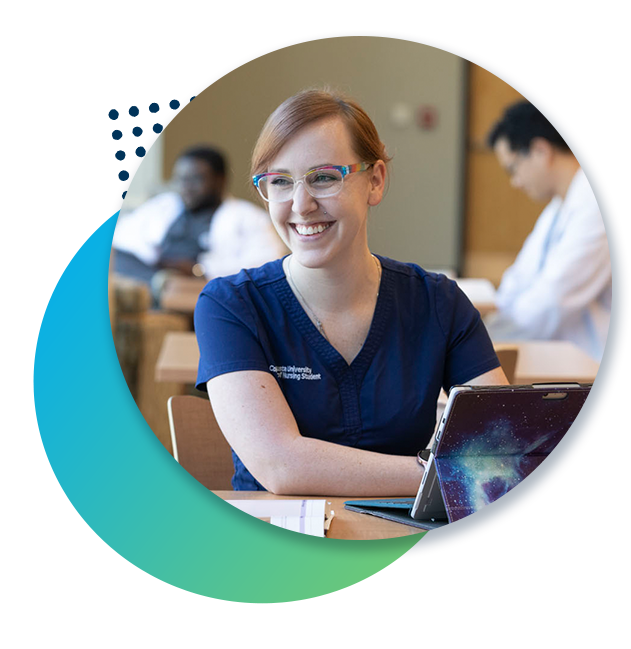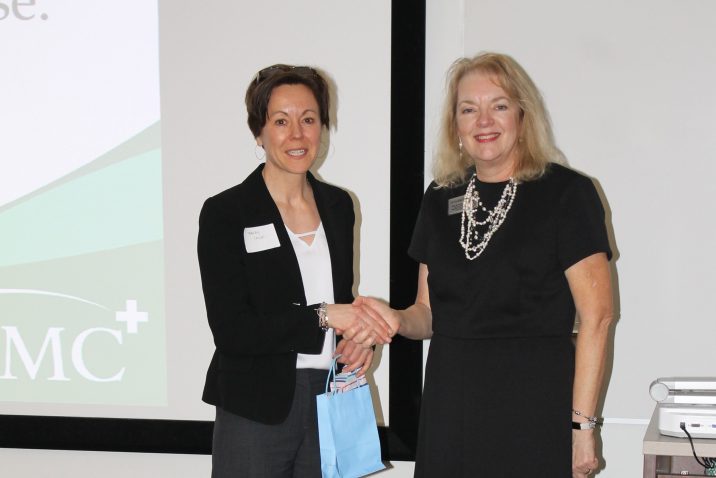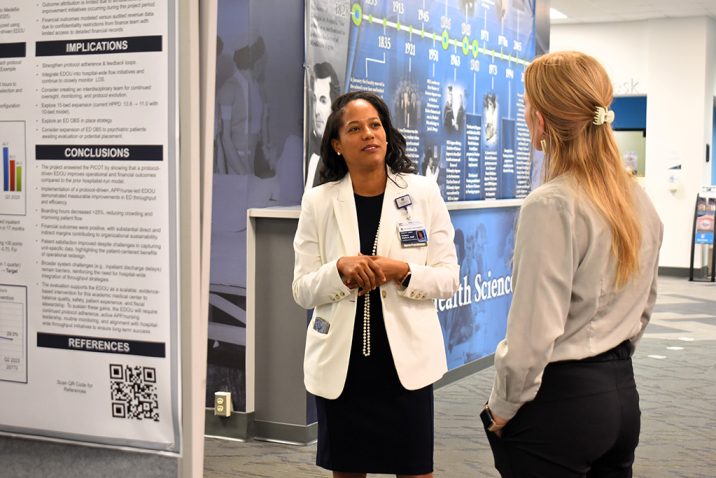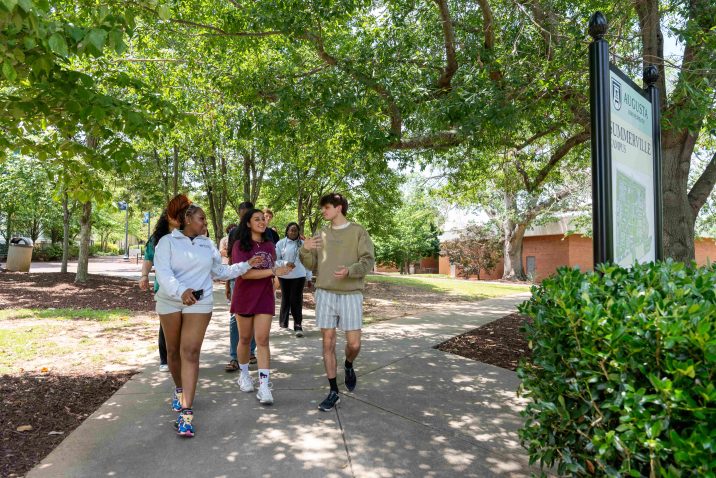Nursing
Are you inspired to work on the front lines of the health care industry?
Nurses provide the compassionate care and clinical reasoning that improves the lives of the sick and the hurting.
Augusta University’s Bachelor of Science in Nursing degree provides students with the opportunity to apply didactic knowledge in a variety of hands-on and simulated clinical settings. Study at our Augusta or Athens campus to become tomorrow’s health care professional today.
Nursing is for you if you consider yourself
Life-Changing
Life-Saving
Education
Want to learn more about the Nursing program at Augusta University?
Request InfoWhat You'll Study
Coursework
The BSN program provides students the knowledge, skills, and abilities to function
effectively in all areas of nursing practice through quality instruction and clinical
experiences. Clinical experiences encompass not only acute care settings, but also
community and home care, ambulatory care, and primary care settings. The program provides
students the opportunity to apply didactic knowledge in a variety of hands-on and
simulated clinical settings. It lays the groundwork for continuing one’s professional
education at the graduate level. This program is four academic years, excluding summer
session.
Experience-based Education
Outside the Classroom
In addition to the four semesters of required coursework, nursing students are required
to complete 765 hours in a clinical, laboratory or simulation environment, which prepares
them to encounter a wide range of clinical settings and challenges.
The state-of-the-art simulation center features patient rooms, classrooms, debriefing
rooms, and equipment to simulate real-world health care conditions.
Through the Center for Nursing Research, students can engage in cutting-edge research,
and as part of a larger health sciences university, exciting opportunities exist to
collaborate with other health care disciplines.
Research & Innovation
Whether you’re an undergraduate or graduate student, you’ll have opportunities to create your own research projects or work with faculty to tackle some of the world’s most complex and pressing challenges.
Academic Health Center
Academic health centers like Augusta University teach tomorrow’s health care professionals, and the only way to do this is to stay on top of the latest treatments and tools for a culture of continuous learning.
Your Future
Career Options
Nurses can be directly involved in patient care and case management, or seek health care leadership roles by pursuing graduate degrees in nursing.
The U.S. Bureau of Labor Statistics projects nearly 195,000 average annual openings for registered nurses over the next decade, with employment projected to grow 6%.

Why Augusta University?
Opportunities to enhance classroom knowledge in a variety of hands-on and simulated clinical settings.
A collaborative health sciences environment that values interprofessional research and provides high-value clinical experiences.
Graduate with the knowledge and skills necessary to immediately impact patient care while applying evidence-based research to reduce health disparities.
Awarded the Diversity, Inclusion, and Sustainability in Nursing Education Lectureship Award from the American Association of Colleges of Nursing.

Nursing PhD student aims to advance stroke-related research, care
Nursing PhD student aims to advance stroke-related research, care


